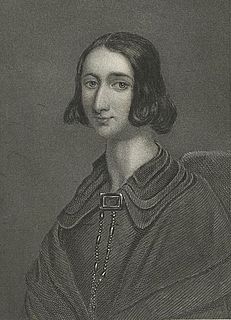A Quote by James Madison
No man is allowed to be a judge in his own cause, because his interest would certainly bias his judgment.
Related Quotes
There should be a law that no ordinary newspaper should be allowed to write about art. The harm they do by their foolish and random writing it would be impossible to overestimate--not to the artist but to the public.... Without them we would judge a man simply by his work; but at present the newspapers are trying hard to induce the public to judge a sculptor, for instance, never by his statues but by the way he treats his wife; a painter by the amount of his income and a poet by the colour of his necktie.
What the working man sells is not directly his Labor, but his Laboring Power, the temporary disposal of which he makes over to the capitalist. This is so much the case that I do not know whether by the English Law, but certainly by some Continental Laws, the maximum time is fixed for which a man is allowed to sell his laboring power. If allowed to do so for any indefinite period whatever, slavery would be immediately restored. Such a sale, if it comprised his lifetime, for example, would make him at once the lifelong slave of his employer.
It is alleged by men of loose principles , or defective views of the subject, that religion and morality are not necessary or important qualifications for political station. When a citizen gives his vote to a man of immorality , he abuses his civic responsibilty. He sacrifices not only his own interest but that of his neighbor, and he betrays the interest of his country.
Where it is in his own interest, every organism may reasonably be expected to aid his fellows. Where he has no alternative, he submits to the yoke of communal servitude. Yet given a full chance to act in his own interest, nothing but expediency will restrain him from brutalizing, from maiming, from murdering his brother, his mate, his parent, or his child. Scratch an 'altruist' and watch a 'hypocrite' bleed.
Man's main task in life is to give birth to himself, to become what he potentially is. The most important product of his effort is his own personality. One can judge objectively to what extent a person has succeeded in his task, to what degree he has realized his potentialities. If he has failed in his task, one can recognize this failure and judge it for what it is - a moral failure.
Just because a man is dressed in a clean white robe does not mean his heart and hands are clean. Any man who neglects his conscience is a dangerous animal. Never judge a man by his image. Images can be bought or produced by any Hollywood producer, marketing team or fleet of stylists. Even kids know how to wear amazing costumes for Halloween. Always judge a man by the coloring of his heart and only his heart. Truth can be found in his record of actions, not intentions.
We are in the society of the teacher-judge, the doctor-judge, the educator-judge, the 'social-worker'-judge; it is on them that the universal reign of the normative is based; and each individual, wherever he may find himself, subjects to it his body, his gestures, his behavior, his aptitudes, his achievements.
That in all capital or criminal prosecutions a man bath a right to demand the cause and nature of his accusation, to be confronted with the accusers and witnesses, to call for evidence in his favor, and to a speedy trial by an impartial jury of twelve men of his vicinage, without whose unanimous consent he cannot be found guilty; nor can he be compelled to give evidence against himself; that no man be deprived of his liberty, except by the law of the land or the judgment of his peers.
































